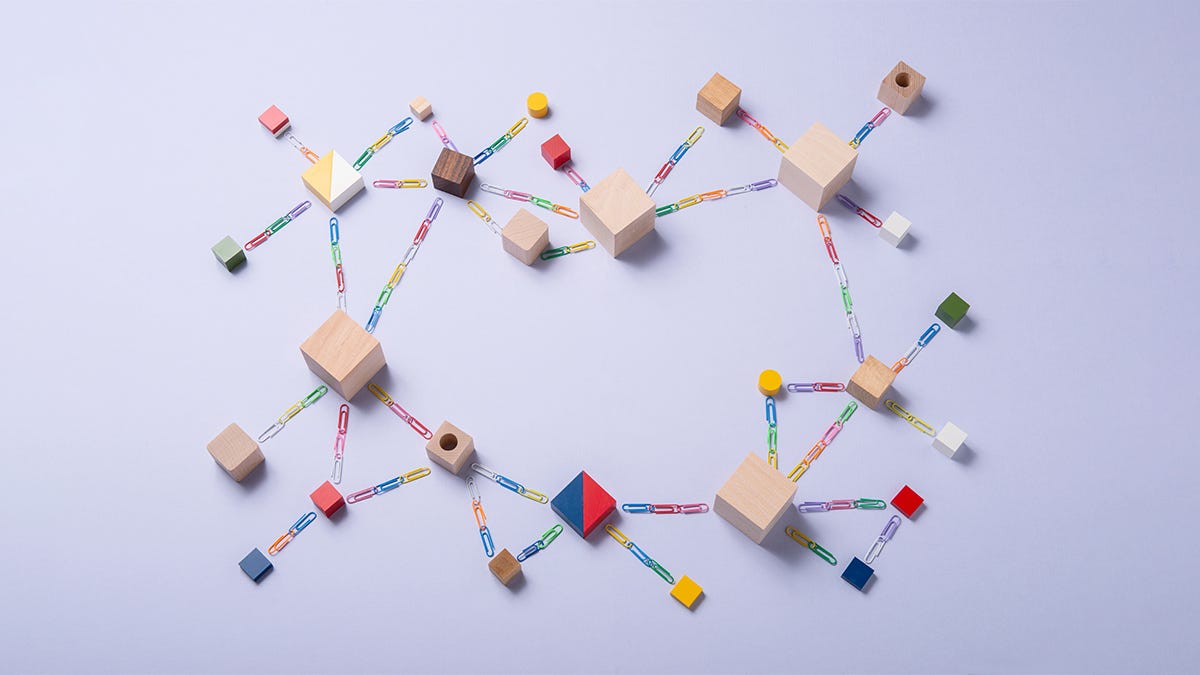
How Decentralized Platforms are Revolutionizing Business Models
In today’s rapidly evolving digital landscape, decentralized platforms are ushering in a profound transformation of traditional business models. These innovative technologies, built on the principles of decentralization, are redefining how we conduct commerce, exchange value, and collaborate across various industries.
From eliminating intermediaries to enabling new forms of asset ownership and governance, decentralized platforms are rewriting the game’s rules, offering businesses unprecedented opportunities and challenges in this era of disruption.
This exploration will explore how these platforms are reshaping the business landscape and opening doors to exciting possibilities.
Understanding Decentralization
Decentralization is a fundamental concept in the world of technology and governance. It refers to the distribution of authority, control, or decision-making across multiple nodes or participants in a network rather than concentrating it in a single central entity or location.
In the context of technology, decentralization often involves the following key components:
- Blockchain Technology
- Smart Contracts
- Distributed Ledger
Blockchain Technology
Blockchain is a distributed ledger technology that records transactions across a network of computers (nodes) securely and transparently. Each node has a copy of the entire ledger, and no single entity has complete control over it. This ensures data integrity and resilience.
Smart Contracts
Smart contracts are self-executing contracts with the terms of the agreement directly written into code. They automatically execute when predefined conditions are met, eliminating the need for intermediaries and enhancing trust in transactions.
Distributed Ledger
A distributed ledger is a database replicated across multiple nodes or computers in a network. Changes to the ledger are recorded as decentralized, making it tamper-resistant and transparent.
The benefits of decentralization include increased transparency, enhanced security, trustlessness (reducing the need to trust a central authority), and improved accessibility.
Decentralization has far-reaching implications, impacting various sectors, from finance to supply chain management. It’s a driving force behind innovations like cryptocurrencies, decentralized finance (DeFi), and decentralized autonomous organizations (DAOs), transforming traditional business models and governance structures.
Transformation of Business Models in Decentralized Platforms
The transformation of business models, driven by decentralized platforms and emerging technologies, reshapes how businesses operate and interact with customers and partners. Here are critical aspects of this transformation:
- Disintermediation
- Tokenization of Assets
- Decentralized Finance (DeFi)
- Decentralized Autonomous Organizations (DAOs)
- Supply Chain Management
- Intellectual Property and Content Creation
- Energy and Sustainability
Disintermediation
Decentralized platforms eliminate the need for intermediaries in various industries. This means direct peer-to-peer interactions, reducing costs, and increasing efficiency. For example, blockchain-based systems enable secure, direct transactions without banks or payment processors.
Tokenization of Assets
Traditional assets like real estate, art, and intellectual property are being tokenized. This means they are represented as digital tokens on blockchain networks, allowing for fractional ownership, more effortless transfer, and increased liquidity. This opens up investment opportunities to a broader audience.
Decentralized Finance (DeFi)
DeFi platforms leverage blockchain technology to offer financial services like lending, borrowing, and trading without relying on traditional banks. Users can access these services globally, 24/7, with reduced fees and greater transparency.
Decentralized Autonomous Organizations (DAOs)
DAOs are organizations governed by smart contracts and decisions made collectively by token holders. They enable decentralized governance, decision-making, and funding allocation, which can be applied to various industries, including art curation and venture capital.
Supply Chain Management
Blockchain-based supply chain solutions provide transparency and traceability for products from origin to destination. This reduces fraud, ensures product quality, and enhances sustainability efforts.
Intellectual Property and Content Creation
Artists, writers, and content creators can use blockchain to protect intellectual property rights, automate royalty payments through smart contracts, and explore new monetization models like NFTs (Non-Fungible Tokens).
Energy and Sustainability
Decentralized platforms can optimize energy grids, allowing for peer-to-peer energy trading and more efficient use of renewable energy sources. This contributes to a more sustainable and eco-friendly future.
These transformations are often characterized by increased transparency, efficiency, and accessibility. However, they also come with challenges, such as scalability issues, regulatory compliance concerns, and the need for widespread adoption.
As decentralized platforms continue to evolve, they will likely play a pivotal role in shaping future business models.
Industry Examples in Decentralized Platforms
Decentralized platforms have significantly impacted various industries, revolutionizing traditional business models. Here are some industry examples showcasing how these technologies are changing the landscape:
- Cryptocurrency and Exchanges
- NFTs (Non-Fungible Tokens)
- Healthcare and Medical Records
- Real Estate and Property Management
- Gaming and Virtual Worlds
- Energy and Sustainability
Cryptocurrency and Exchanges
- Bitcoin and other cryptocurrencies have introduced digital assets that operate on decentralized blockchain networks.
- Cryptocurrency exchanges facilitate trading and investment in these digital assets, allowing users to securely buy, sell, and store cryptocurrencies.
NFTs (Non-Fungible Tokens)
- NFTs represent unique digital or physical assets on blockchain networks, such as art, collectibles, and virtual real estate.
- Artists and creators use NFTs to monetize their digital creations, providing provenance and authenticity for buyers.
Healthcare and Medical Records
- Decentralized platforms enhance the security and accessibility of medical records.
- Patients can securely control and share their medical data with healthcare providers, improving care coordination and privacy.
Real Estate and Property Management
- Blockchain enables real estate tokenization, making it easier to buy and sell property in smaller fractions.
- Smart contracts automate property transactions, reducing the need for intermediaries like real estate agents.
Gaming and Virtual Worlds
- Decentralized gaming platforms use blockchain to create unique in-game assets and verifiable ownership.
- Players can trade, sell, and use these assets across multiple games and virtual worlds.
Energy and Sustainability
- Decentralized energy grids allow consumers to trade excess energy with peers using blockchain.
- This promotes using renewable energy sources and reduces reliance on centralized utilities.
These examples illustrate how decentralized platforms disrupt various sectors, offering new opportunities for innovation and efficiency while addressing long-standing challenges. As these technologies mature, they will likely find applications in even more industries, reshaping traditional business models.
Challenges and Risks in Decentralized Platforms
While decentralized platforms offer numerous benefits, they also come with their fair share of challenges and risks that need to be addressed:
- Scalability Issues
- Regulatory Compliance
- Security Concerns
- Adoption Hurdles
- Interoperability
- User Experience
Scalability Issues
Many decentralized systems, especially blockchain networks, struggle with scalability as they grow. Transaction processing can become slow and expensive, hindering mainstream adoption.
Regulatory Compliance
The decentralized nature of these platforms can pose challenges for regulators. Governments are still working on frameworks to regulate cryptocurrencies, ICOs (Initial Coin Offerings), and other decentralized applications to prevent fraud, money laundering, and tax evasion.
Security Concerns
While blockchain is often touted for security, it’s not immune to attacks. Smart contract vulnerabilities, 51% attacks, and wallet breaches have resulted in significant losses.
Adoption Hurdles
Transitioning from traditional centralized systems to decentralized platforms can be challenging for businesses and users. There’s a learning curve; not all industries are prepared for such a shift.
Interoperability
Many different blockchain networks exist, and they often operate independently. Achieving interoperability between these networks to enable seamless transactions and data sharing remains challenging.
User Experience
Some decentralized applications (DApps) have complex user interfaces, making them less user-friendly than their centralized counterparts. Improving the user experience is crucial for broader adoption.
Despite these challenges and risks, the potential benefits of decentralized platforms, including increased security, transparency, and access to financial services, continue to drive innovation and investment in the field.
Over time, solutions to these challenges are likely to emerge, further cementing the role of decentralization in various industries.
Future of Decentralized Platforms
The future of decentralized platforms is expected to be marked by several significant trends as these technologies evolve and mature. Here are some key future trends to watch for:
- Cross-Chain Compatibility
- Web3 and Metaverse Integration
- Integration with IoT and AI
- Enhanced Privacy Solutions
- Government and Institutional Adoption
- DeFi Evolution
Cross-Chain Compatibility
Interoperability between different blockchain networks will become more prevalent. Solutions that allow assets and data to move seamlessly between other chains will enhance the overall functionality of decentralized platforms.
Web3 and Metaverse Integration
Decentralized platforms will be crucial in developing the Web3 and metaverse ecosystems. Virtual worlds, gaming, social interactions, and commerce will become increasingly interconnected on blockchain-based platforms.
Integration with IoT and AI
Decentralized platforms will integrate with the Internet of Things (IoT) and artificial intelligence (AI) to create smart, autonomous systems. This can lead to automated supply chain management innovations, energy optimization, and more.
Enhanced Privacy Solutions
Privacy-focused blockchain technologies, such as zero-knowledge proofs and privacy coins, will continue to advance. These technologies will address concerns about data privacy and confidentiality in decentralized systems.
Government and Institutional Adoption
Governments and traditional institutions will be more active in adopting and regulating decentralized technologies. Central bank digital currencies (CBDCs) and blockchain-based identity systems are examples of such initiatives.
DeFi Evolution
Decentralized finance (DeFi) will continue to grow and diversify, with new financial products and services being introduced. Regulatory clarity and risk mitigation measures will also become more standardized.
These trends reflect the ongoing maturation of decentralized technologies and their growing impact on various aspects of our lives, from transacting and communicating to interacting with digital and physical environments.
While challenges remain, the decentralized platform space has vast potential for positive disruption and innovation.
Conclusion
Decentralized platforms are at the forefront of reshaping traditional business models and revolutionizing various industries. These innovative technologies, underpinned by principles of decentralization, have ushered in a new era of trust, transparency, and efficiency.
As decentralized technologies continue to mature, they promise to enable a more equitable, efficient, and interconnected global economy.
Embracing and adapting to these changes will be crucial for businesses and industries looking to thrive in this decentralized landscape. The journey toward a more decentralized future is filled with opportunities, challenges, and endless possibilities.





